Vocation is a gift from God. It is nurtured and developed through many encounters which are part of a larger plan of God. We share on how, after a conversion in an Evangelical context –Fr. Gregor became a Catholic missionary priest in S. Sudan grew up in a family where my paternal grandparents were practicing the Catholic faith. It was custom in their house to pray before dining, and we grandchildren learned about the importance of Sunday mass as a fixed ritual of the week. During childhood, I had an unquestioned faith in the presence of God in my life. I also decided to become an altar servant as a teenager. Unfortunately, faith did not appear as something relevant.
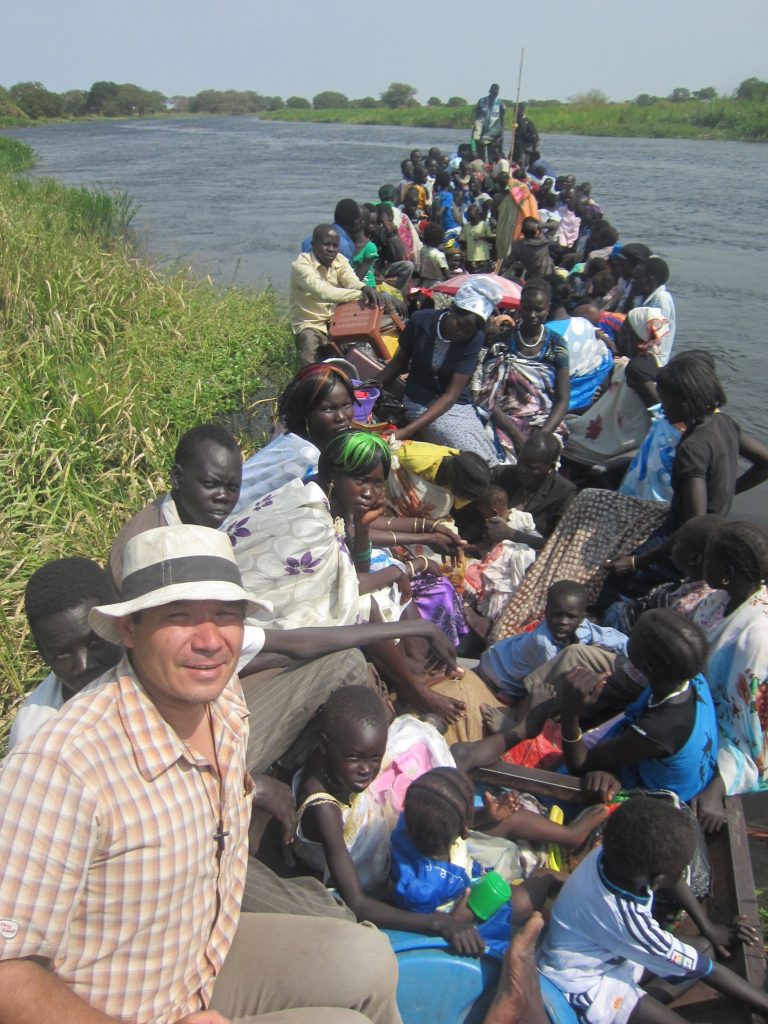
My direction only changed when I went to the USA as an exchange student at the age of 17. By chance, I applied at a Christian ecumenical organization, Young-Life, that placed me with a warm-hearted Protestant family. Their Brethren Church had an active youth ministry and together with the Young-Life youth program, it opened a new world for me to live as a Christian. I can describe it best as a transition from a self-centered to a Christ-centered life. There is a verse of the apostle Paul that summarizes my faith-experience: “I have been crucified with Christ; and it is no longer I who live, but it is Christ who lives in me. And the life I now live in the flesh I live by faith in the Son of God, who loved me and gave himself for me.” (Gal 2:20)
Although my turning towards Christ happened in a Protestant environment, it is a profound Catholic experience: all the saints in history had a personal conversion to and devotion for Christ. After returning home, my faith-experience was so different from the secular lives of many Catholics. Before, I was connected to the parish but did not understand Christ. After, I was devoted to Christ but did not feel at home in the Church.
During that period, my paternal grandmother who had converted from the Lutheran to the Catholic Church and was well informed about matters of faith helped me bring Jesus Christ, the Holy Scripture and the Catholic Church together. At the time when I completed high school, Germany still had the military draft. Instead of using a weapon, I chose to do social service in an accredited institution.
At the French monastery of Taizé, I met a young man who had done his social service as a lay missionary through the Catholic Church in Peru. It was a partnership between a parish in the south of Germany and the diocese of Chachapoyas in the north of Peru.
There, I was engaged in different ways as a lay missionary. The people suffered in the 1990s from terrorism by the SenderoLuminoso and counter-terrorism measures by the Peruvian government that killed and imprisoned thousands of innocent citizens. As a reaction, the diocese where I worked founded a human rights commission and through this, I visited the local prison almost daily and organized courses for the rural, predominantly illiterate, population. In the parish, I coordinated the youth work for those who had received the sacrament of first communion. The active work with families and the preparation of catechists inspired me a lot. Looking back, my prayer service as a catechist finally developed into the desire to become a priest.
Back in Germany, I decided to study theology with the idea of working in a parish as a lay person. I started to live with my Old Testament lecturer, a Benedictine priest. It’s here that I got into the habit of attending mass daily and soon after, it became clear that Jesus had called me to be a missionary priest. It was not a decision that I had to make; rather, it was a discovery of what had already grown in my heart. The only question to answer was where I would join.
During the following holidays, I returned to Chachapoyas. Meanwhile, one of my friends of the parish had joined the postulancy of the Comboni Missionaries in Peru. He spoke about the founder, St. Daniel Comboni and the charism of first evangelization. It just fit what I was searching for. The Comboni Missionary dedicates his life for the mission through the evangelical vows and shares the life of the local people. During the 19th century, when Africa was ravaged by European colonialism and the Arab slave trade, Comboni spoke of his “brothers and sisters in Central Africa” who were, according to him, the “poorest and most abandoned” of all people and who deserved to know the compassionate face of God in Jesus Christ. That is why he founded missions in the Sudan. When, during my period of discernment, I heard about Comboni for the first time, as Jesus had given up his divine status in heaven in order to become a servant for the salvation of humanity (Mk 10:45; Phil 2:5-8), I was ready to leave my safety in Germany and follow his footsteps in the charism of Comboni.
After living for two weeks in a German Comboni community, I applied to enter the postulancy. After the novitiate in Italy, I asked to be sent to Africa. Since 2005, I have been living in East-Africa – first in Kenya and, since 2009, in South Sudan among semi-nomadic pastoralists. I was ordained Priest in my hometown Berlin in March 2011. At that time gifts will be brought to the LORD of hosts from a people tall and smooth, from a people feared near and far, a nation mighty and conquering, whose land the river divides, to Mount Zion, the place of the name of the LORD of hosts. (Is 18:7) The verse above speaks about the people in the Sudan.
The “river” is the Nile which divides the territory. The African in Acts (Ch. 8), who gets baptized by Deacon Philip, was the first Sudanese Christian, even before the Gospel reached Europe. The Nuer were displaced during the Sudanese civil war in the 2nd half of the 20th century and became Christians as refugees through the contact with Catholic and Protestant missionaries in Khartoum and Ethiopia. During the struggle against their Islamic-fundamentalist government, they discovered the God of the Bible as the Holy One who hears the cry of his suffering people like he heard the enslaved Israelites in Egypt. The Gospel spread among the Nuer in the 1980s and 1990s. The vision of Isaiah that the “people tall and smooth” of the Nile would worship God has also become true for them. Today, there are hundreds of thousands of Nuer Christians (mainly Presbyterians, Catholics and Episcopalians).
The Comboni Missionaries were invited by the bishop of Malakal Diocese in 1998 to serve those Catholics of Fangak region in the Sudd, the wetlands of the Nile. In particular, we train catechists, women and youth to be competent prayer leaders and teachers of the faith in their chapels. We also offer the catechumenate for adults who ask to become Christians. Furthermore, because of the current civil war, reconciliation among ethnic groups has become an important task of the churches in South Sudan.
I am grateful to witness that the Triune God is being worshipped in Sudan. Our young Catholic community is very hospitable and generous. We have just celebrated our 20th parish anniversary. If it makes sense at all to speak of the “end of the earth” on the spherical planet, I claim that the wetlands of the Nile are a good candidate.
The isolation and simplicity of lifestyle help me to focus on the essentials of what it means to be a human and a Christian. I am grateful for the entire way that God has led me so far and don’t want to change anything of what has shaped me through His grace into the person that I have become.

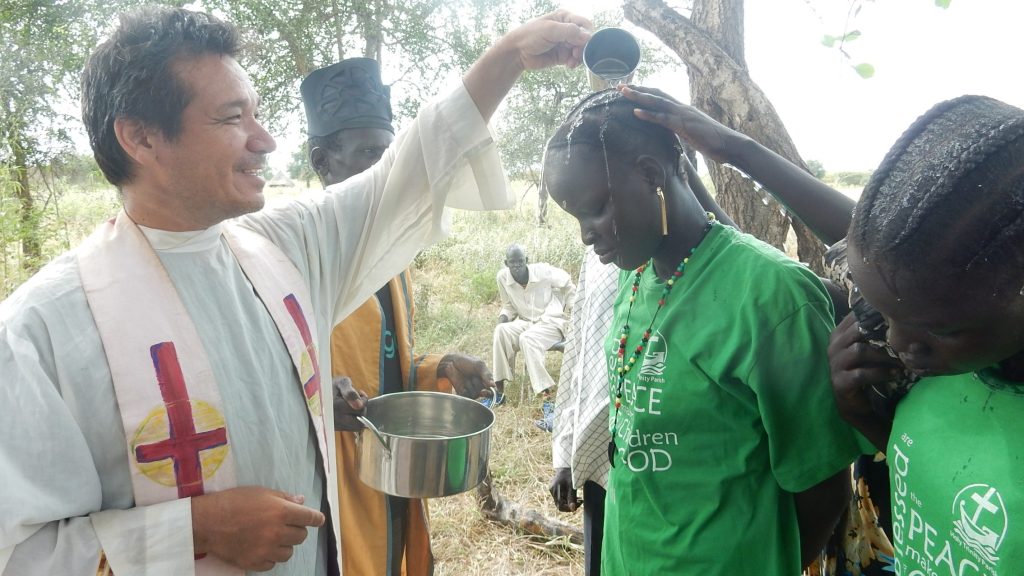
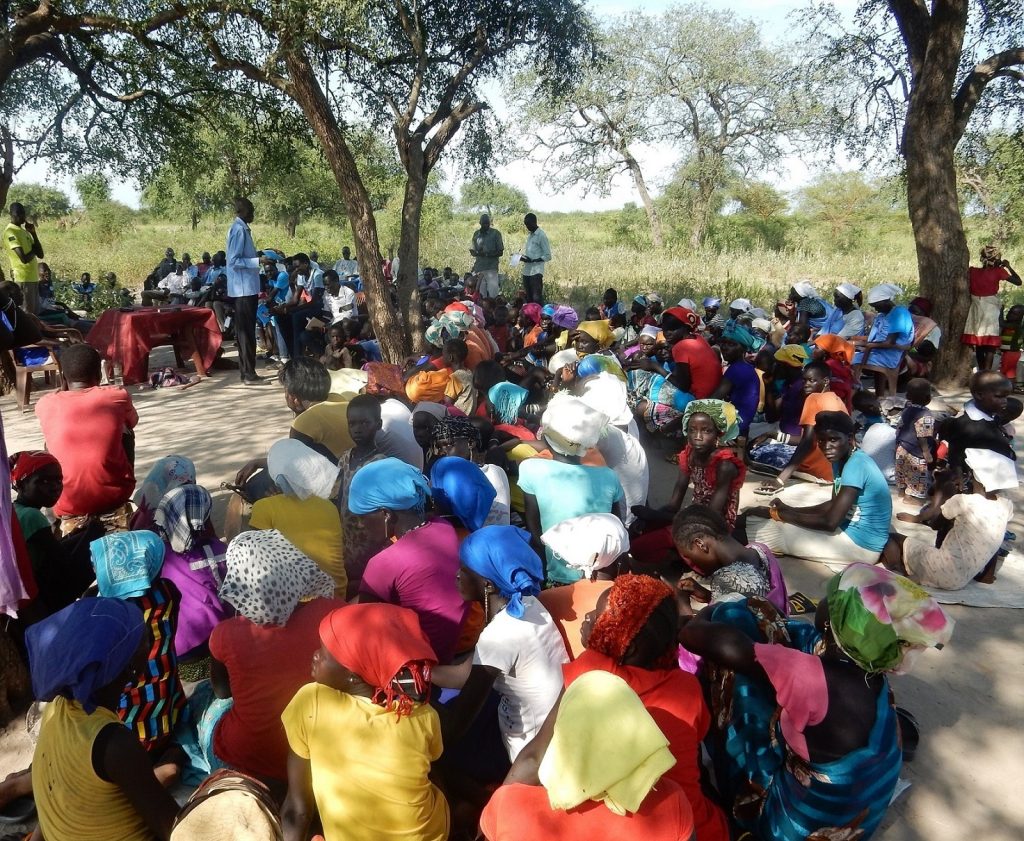
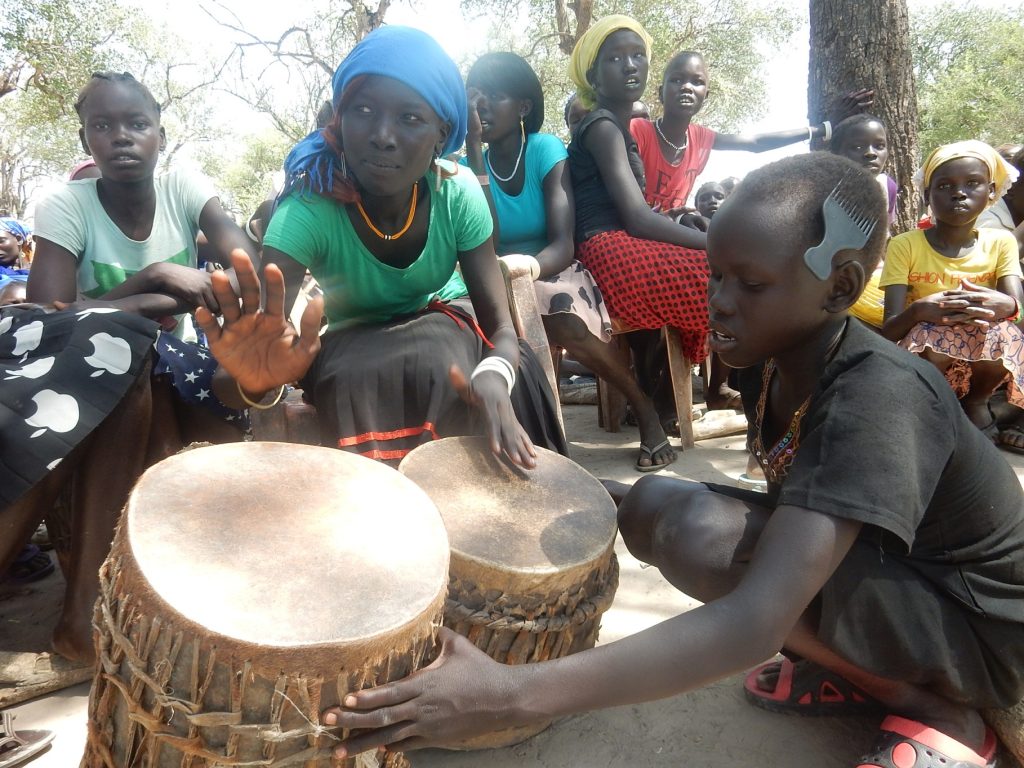
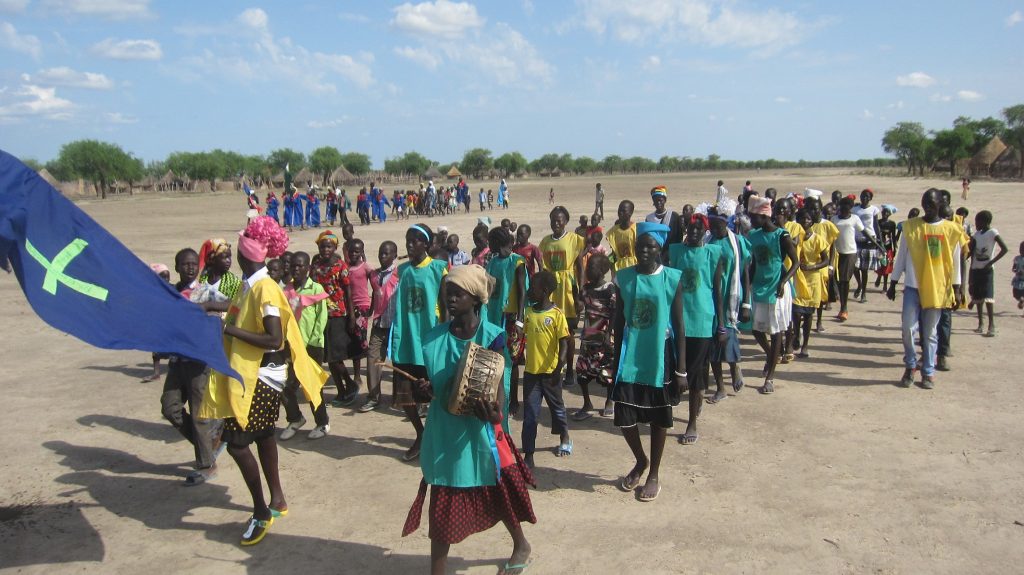
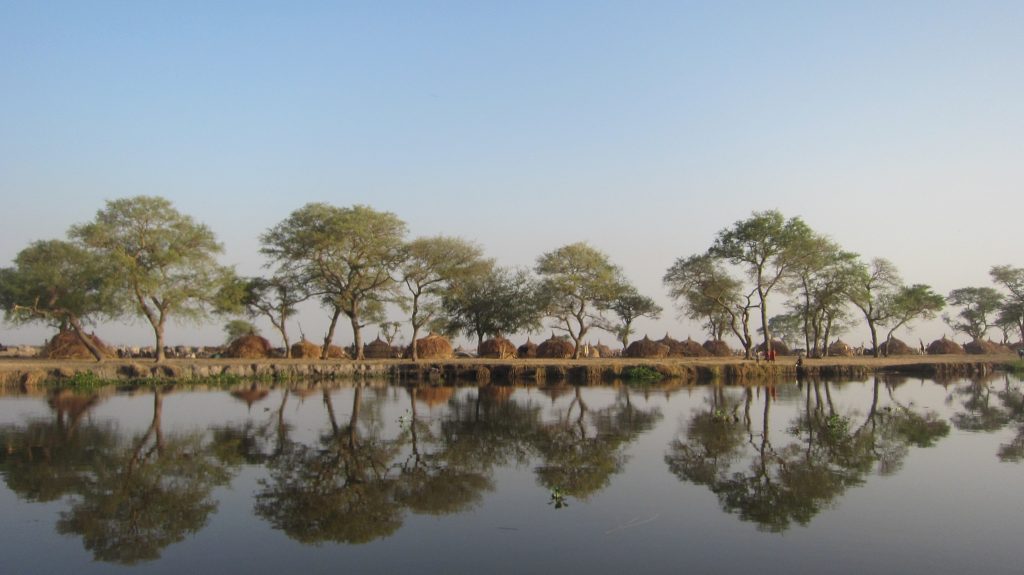
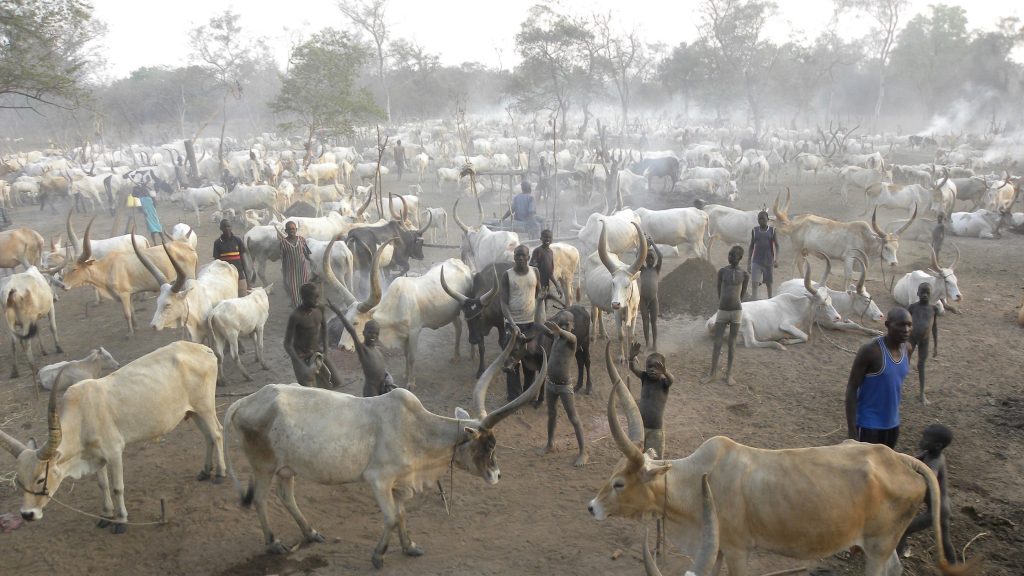



Leave A Comment